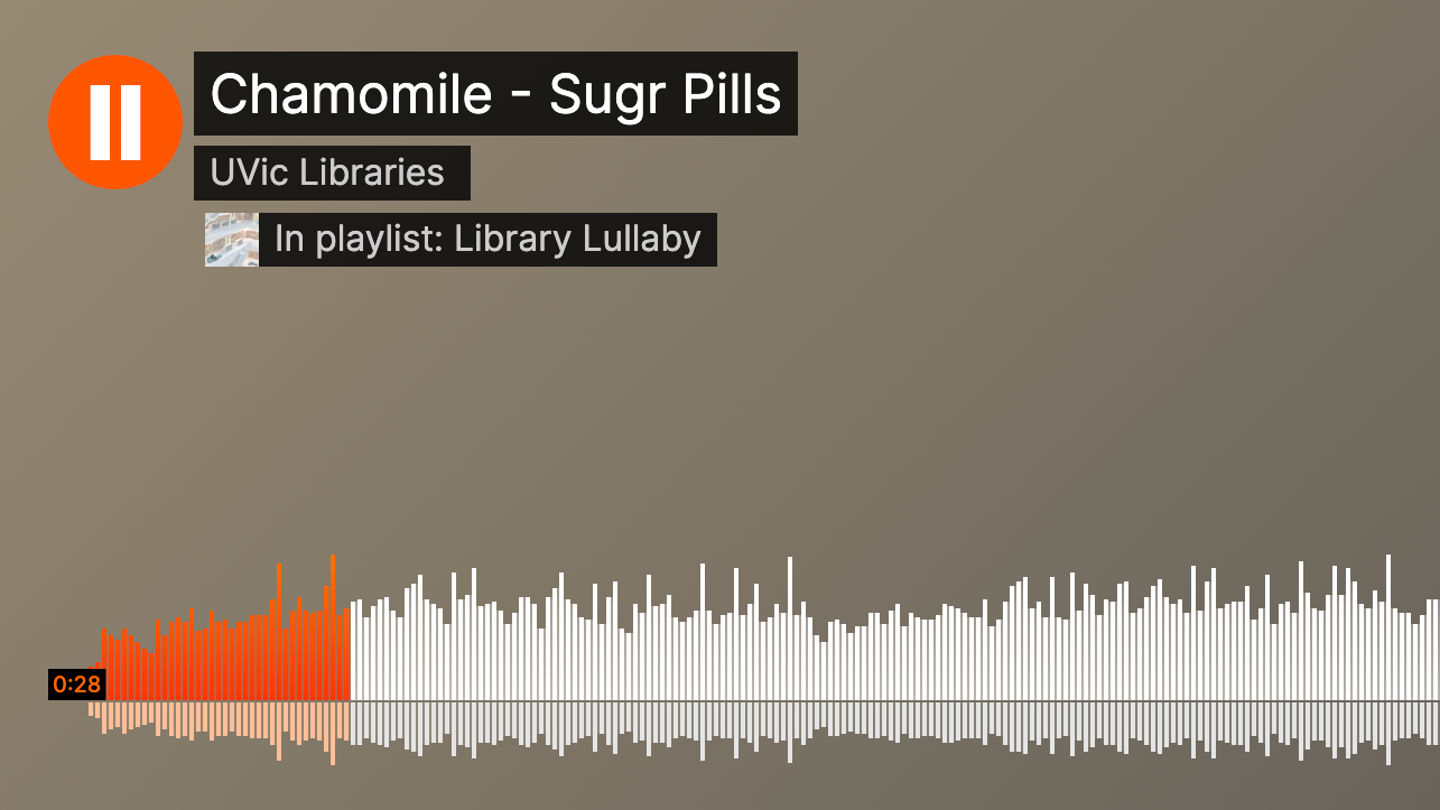Music students create a lullaby library in MUS 406A

When Kirk McNally (Assistant Professor, Music Technology) and Jocelyn Greenwood (President, Cordova Bay Records) initially met, it was not with the intention of teaching undergraduate students how to create ambient music tracks from scratch in their bedrooms during a world pandemic.
But when the COVID-19 pandemic forced learning to go online, McNally’s Music 406A: Advanced Recording Techniques students were faced with the need to shift their understanding of what it means to be a recording artist.
In partnership with local independent record label Cordova Bay Records, McNally delivered a community-engaged learning experience for ten Music and Computer Science students in the Fall 2020 semester in which students composed and produced original songs.
Learning key concepts in sound recording
McNally’s course teaches students about key concepts of sound recording and music production in the context of today’s music industry. Greenwood joined the class to discuss the ins and outs of both the creative and business sides of heading up Cordova Bay Records (CBR) and answer the students’ questions on what it’s like to be a professional musician working in the field.
“It was really wonderful, the more interactive side of things—hearing their questions and trying to make that connection between what they’re learning and also what they know from just being a music consumer, and how that connects to the other side of being someone who is actually trying to make a living with their music,” Greenwood shared.
She also posed a challenge to the class: to compose an original ambient music track for consideration of being signed by CBR’s new ambient music imprint, Flood Tide Music. The pandemic twist? All recording would need to occur from students’ home setups.
Creating unique music tracks
Students composed and recorded all their tracks from their homes, and were invited to create an alias under which to publish their track(s).
As one-half of the artist duo that makes up Sugr Pills, fourth-year student Ken Kosowick created a track for the course entitled Chamomile. Kosowick shared, “It was just a really cool experience to try to make something that I wouldn’t normally make, under parameters that are given and to try to achieve a certain sound. I didn’t know if I could do that, and I think it was a success.”
Classmate Lindsey Bellman, also in her fourth year, published her track Luna under the name Linds. She explained that despite the course operating differently to how it did in previous years because of the pandemic, “it still ended up being really useful information because we just learned about a different step of the producing process instead of the recording process, so for me it was still really valuable information.”
Bellman’s motivation was also influenced by working with Greenwood as the community partner: “I definitely was composing knowing that somebody who was really high up in the industry with a lot of experience would be listening to it—and that was always in the back of my mind when I was making my piece—so I think it encouraged me to do a little better than I thought I would have done. I was working hard to try to get the track sounding good because I knew Jocelyn would listen to it.”
Feedback and guidance
Once the tracks were complete, Greenwood listened to the students’ work. “It was really cool to see the development and the different takes that each of the students did on these. It was great to hear the different styles because it could be anything from a slightly electronic vibe to solo piano, solo guitar, and many of them collaborated with other musicians as well. I was really impressed with the quality of production because I know they had very limited resources this year, especially without being able to necessarily get in and use the studio.”
With the assistance of UVic librarian Lisa Goddard, all of the students’ tracks have been compiled into a SoundCloud playlist entitled Library Lullaby.
Course funding
This community-engaged learning course was funded by an Experiential Learning Fund grant. Are you a faculty member interested in applying for this grant, or a student wanting to get involved in your own community-engaged learning experience?
Contact the CEL Office for more information.
